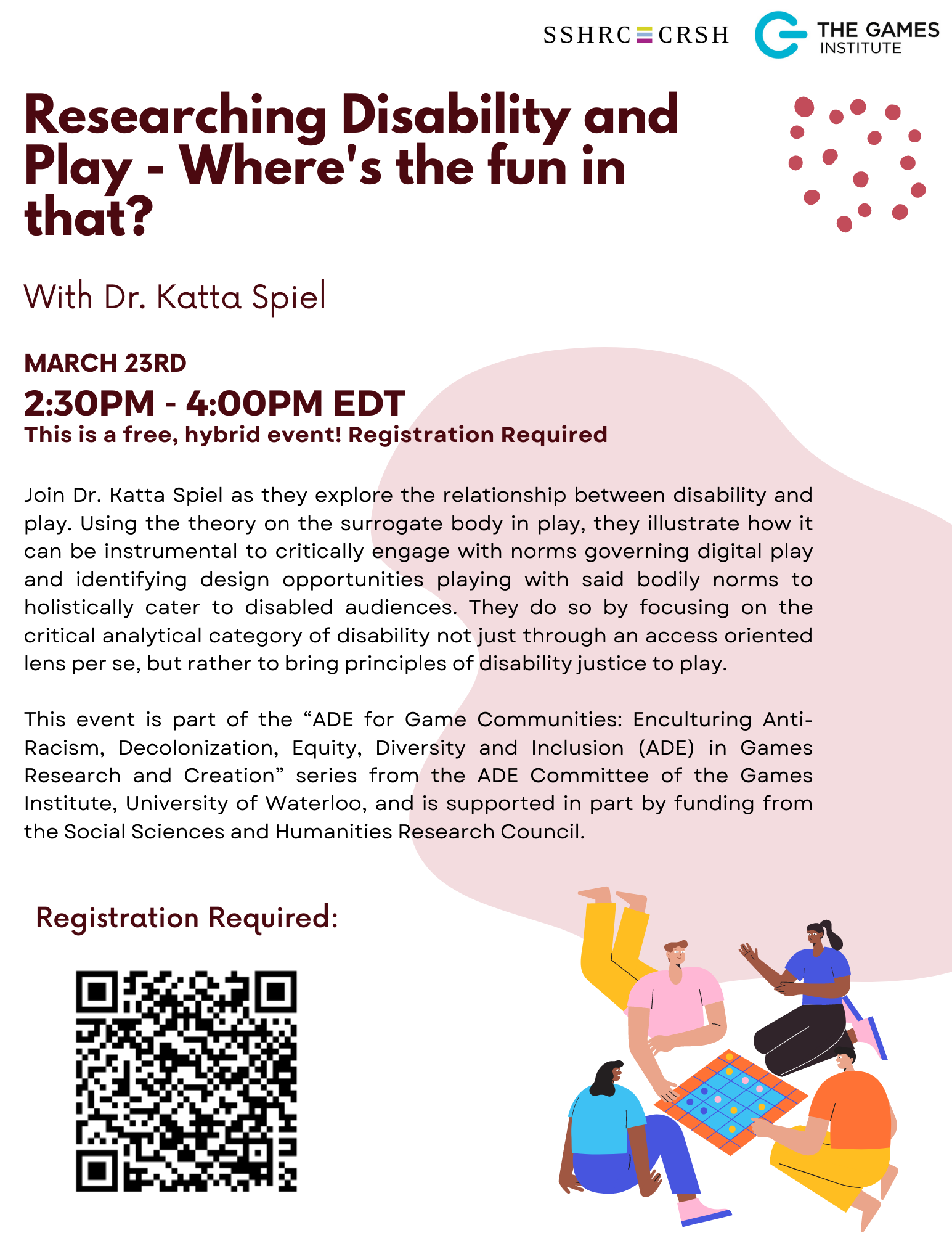
Games research is slowly diversifying in matters of representation as well as accessibility related investigations. Similarly, a materialist and embodied understanding of play (also digitally) seeps in more on a theoretical basis. However, we need to critically examine what kind of bodies are invited to participate in play and how. Where games and play are mostly conceptualized as entertainment for the majority of bodies, disabled people are often relegated to playing for externally motivated purposes that are often driven by deficit oriented medical models of disability. Using the theory on the surrogate body in play, they illustrate how it can be instrumental to critically engage with norms governing digital play and identifying design opportunities playing with said bodily norms to holistically cater to disabled audiences. They do so by focusing on the critical analytical category of disability not just through an access oriented lens per se, but rather to bring principles of disability justice to play.
About the Speaker:
Katta Spiel is an FWF Hertha-Firnberg scholar at the HCI Group of TU Wien (Vienna University of Technology), where they work on the intersection of Computer Science, Design and Cultural Studies. Katta researches marginalized perspectives on technologies to inform interaction design and engineering in critical ways so they may account for the diverse realities they operate in. Drawing on methods from (Critical) Participatory Design and Action Research on a background heavily shaped by Queer Theories and Disability Studies, they collaborate with neurodivergent and/or nonbinary peers in conducting explorations of novel potentials for designs, methodological contributions to Human-Computer Interaction and innovative technological artefacts.
Registration is Required– in-person audience will be hosted in the Collaboration Space with light refreshments. Virtual audience will receive an online link the day before the event.